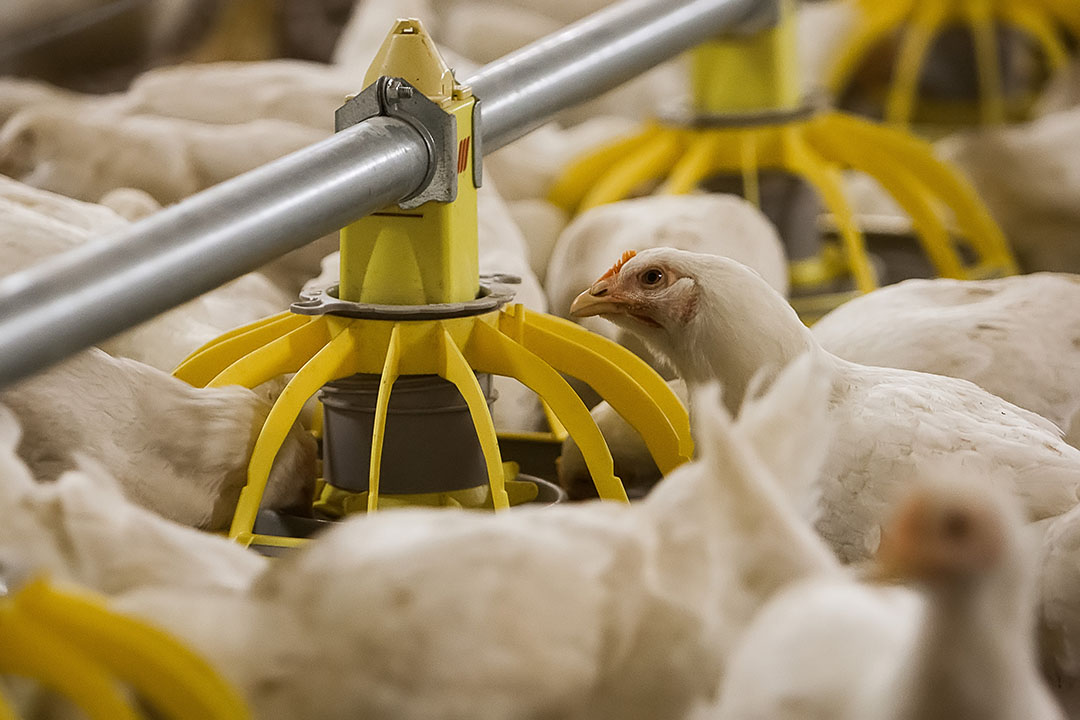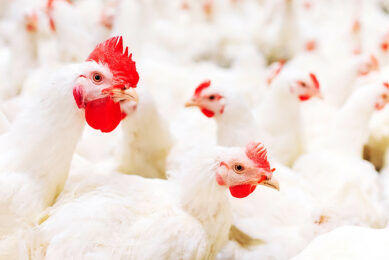Is broccoli extract better than essential oils in broilers?

In poultry production, the desire to produce fast growing chickens may result in challenges such as oxidative stress. Essential oils have been shown to possess antioxidant properties. Recent studies have identified similar properties in broccoli waste. Can the value of broccoli waste be equated to that of essential oils?
A recent survey (2018) carried out in Thailand revealed a strong consumer preference for meat products raised with natural phytogenic feed additives and products that reduce environmental impact. In addition to its nutritional value, the utilisation of broccoli waste in the feed industry can help reduce the negative environmental impact resulting in deposition of this waste.
Researchers at the Martin Luther University Halle-Wittenberg in Germany made a comparison of broccoli extract with essential oils from turmeric, oregano, thyme and rosemary on performance, xenobiotic and antioxidant enzymes in broilers. Their study comprised a total of 240-day-old broiler chickens that were fed a commercial starter diet for 2 weeks.
On day 15, the birds were assigned to 6 treatment groups:
(i) the control group was fed a diet without any additive for 3 weeks,
(ii) the diet of group sulforaphane (SFN) contained broccoli extract, providing 0·075 g/kg SFN,
(iii) the diets of the other four groups contained 0·15 g/kg essential oils from turmeric, oregano, thyme and rosemary.
Their findings are presented in the sections below.

Broccoli vs essential oils
Before getting to the results of the study, it is important to have some background information on these 2 alternatives. Broccoli florets are usually consumed as cooked food. However, the discarded, potentially nutritious stems and leaves of broccoli often go into landfills as by-products after harvesting and processing of the florets. Incorporating broccoli residues in animal feed thus adds to the sustainable feed base while reducing potential harm to the environment. Broccoli is rich in dietary fibres, vitamins and minerals, as well as bioactive phytochemicals. Most phytochemicals are known to possess strong antioxidant properties. Essential oils can be obtained from plant materials (leaves, buds, fruits, flowers, herbs, twigs, bark, wood, roots and seeds). Essential oils have been reported to possess significant antimicrobial and antioxidant properties. Studies show that essential oils positively affect the growth and performance of chickens by improving feed palatability, secretion of digestive enzymes and nutrient digestibility, although these findings are not always consistent.
Also interesting:
A meal made from the wasted stems and leaves of harvested broccoli has been found to improve the nutritional density of poultry diets and deepen the colour of egg yolks. read more…
Antioxidant response element
The researchers aimed to study the induction of antioxidant response element (ARE)-regulated xenobiotic and antioxidant enzymes, and the performance of broilers fed broccoli extract and the various essential oils – to see if differences exist between the essential oils and the broccoli extract.
Performance
The feed intake was similar between the broccoli supplement and all the essential oils (turmeric, oregano, thyme and rosemary). However, feed intake was numerically better for the broccoli diet compared to either oregano oil, thyme oil or rosemary oil.
The order (from highest to lowest) was as follows:
- turmeric oil
- broccoli extract
- thyme oil
- oregano oil
- rosemary oil
Similarly, the weight gain and feed conversion were not statistically better for broccoli extract compared to the rest of the essential oils.
The order for weight gain was as follows:
- thyme oil
- broccoli extract
- rosemary oil
- oregano oil
- turmeric oil
The authors concluded that since both weight gain and feed conversion are usually positively associated with general animal health, it can be suggested that phytogenic feed additives do not merely act as growth promoters. Their suggested that the exclusive addition of phytogenic substances as growth promoters to animal feed may be less effective than their combinations with feed enzymes or probiotics. In their study, broilers were not subjected to any pathogenic or toxic substance challenge. However, under practical feeding conditions which usually involve high stocking rates and sub-optimal health conditions, it can be assumed that the threat of infections and the challenge of feed contaminants will increase; in that case, the antimicrobial nature of most phytogenic feed additives would prove beneficial. For example, in another study, performance parameters improved when turmeric oil and oregano oil were added to broiler diets when the birds were challenged with aflatoxin B1 and Eimeria tenella,
Benefits of broccoli for broilers
The feed industry is constantly seeking sustainable alternatives to antibiotics. Broccoli residues have valuable antimicrobial and antioxidant properties that make them an attractive alternative. respectively. read more…
Antioxidant capacity
The antioxidant activity of broccoli and essential oils was similar, but higher compared to the non-additive diet; this was seen through higher activities of superoxide dismutase and glutathione peroxidase enzymes. The mRNA overall expression of xenobiotic and antioxidant enzymes in the GIT was higher for both the broccoli and the essential oil diets compared to a diet without any additive.
Since the main active compound of broccoli, isothiocyanate sulforaphane, has no direct antioxidant properties, the antioxidant activity of broccoli extract can be assumed to be through its impact on the induction of intestinal ARE (antioxidant response element)-regulated xenobiotic and antioxidant enzymes. On the other hand, essential oils are shown to have antioxidant properties as they contain compounds such as polyphenolics, alkaloids, lignans, flavonoids and terpenoids. These compounds neutralise superoxide, hydrogen peroxide and nitric oxide by scavenging radicals or by increasing the production of enzymes such as catalase, superoxide dismutase and glutathione peroxidase.
Xenobiotic enzyme regulation
In the jejunum, broccoli extract, turmeric and rosemary oils increased the expression of xenobiotic enzymes (epoxide hydrolases 1 and 2 and aflatoxin B1 aldehyde reductase) more than oregano and thyme oils.
Remarks
- The exclusive addition of phytogenic substances as growth promoters to broilers may be less effective than combinations with feed enzymes or probiotics. However, in practical conditions where there are likely to be sub-optimal health conditions or presence of pathogens, phytogenic additives may be beneficial, owing to their antimicrobial properties.
- Although the mechanisms may differ, the antioxidant capacity of essential oils (thyme oil, rosemary oil, oregano oil and turmeric oil) is no better when compared to broccoli extract. Broccoli extract acts as a modulator of ARE-regulated genes, inducing intestinal ARE-regulated xenobiotic and antioxidant enzymes.
- With regard to antioxidant capacity and its effect on the performance of broilers, broccoli extract can replace the use of essential oils in broiler diets without suppressing performance.











